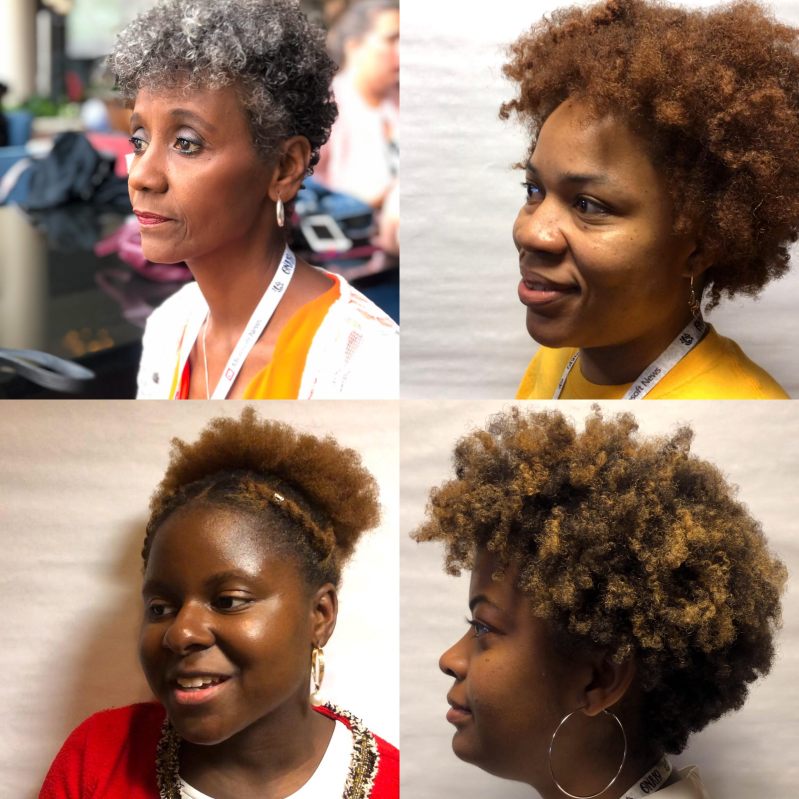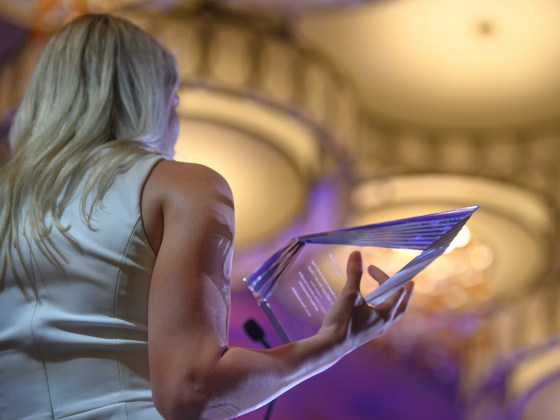A high school wrestler in New Jersey was forced to cut his dreadlocks during a match. An 11-year-old girl was sent home because her hair extensions were “unacceptable.” These are examples of the degree to which black people are victimized for the unchangeable trait of having the hair they were born with.
A viral moment emerged weeks ago at The National Association of Black Journalists conference this year in Miami when a large group of on-air black women met up to celebrate their natural hair. NABJ president Dorothy Tucker participated in the photo as well, with caption text that read, “Black women on TV are embracing the beauty and power of their #NaturalHairOnAir.”
“It was really inspiring just to see this group of women, most of them young, who were bold enough and proud enough to say ‘I am going to go natural. This is who I am,’” Tucker said.
Black women at the ONA Conference are choosing to present themselves in their natural hair as well. The decision not to conform to Eurocentric beauty standards allows black women to completely be themselves.
I feel like I never had much of a choice,” Kynala Phillips said. “Getting my hair done is expensive. When I started wearing my hair naturally, I felt more confident and I kept with it.”
For some black women, showing up naturally is a big decision because what it has meant in the workplace. For those who have been natural their whole life, they’d like to show up and be accepted for who they are.
“The whole time I’ve been a professional, I’ve had natural hair,” Stephanie Toone, ONA student newsroom mentor, said. “My first job I got at a newspaper I had locs. I didn’t see any problem. I didn’t have a problem getting a job with a hairstyle perceived as not professional.”
Whether being natural or “going natural”, the working environments will need to learn to embrace these women’s choice, along with changing laws.
The issue is gaining momentum among policy makers. New York and California are the only two states to address the issue of racial discrimination on the basis of hair.
The new California bill states, “In a society in which hair has historically been one of many determining factors of a person’s race, and whether they were a second-class citizen, hair today remains a proxy for race. Therefore, hair discrimination targeting hairstyles associated with race is racial discrimination.”
If conferences are a proxy for our newsrooms, black women are embracing themselves, and their natural hair, here at ONA19. The visibility of these styles are hard to miss, adding a human component to a conference where technology is the driver.
“I actually decided to wear my natural hair in college,” Tia Humphries said. “It was mostly due to being in the presence of HBCUs and seeing other women of color wearing their natural hair. I figured it was time to embrace mine.”






